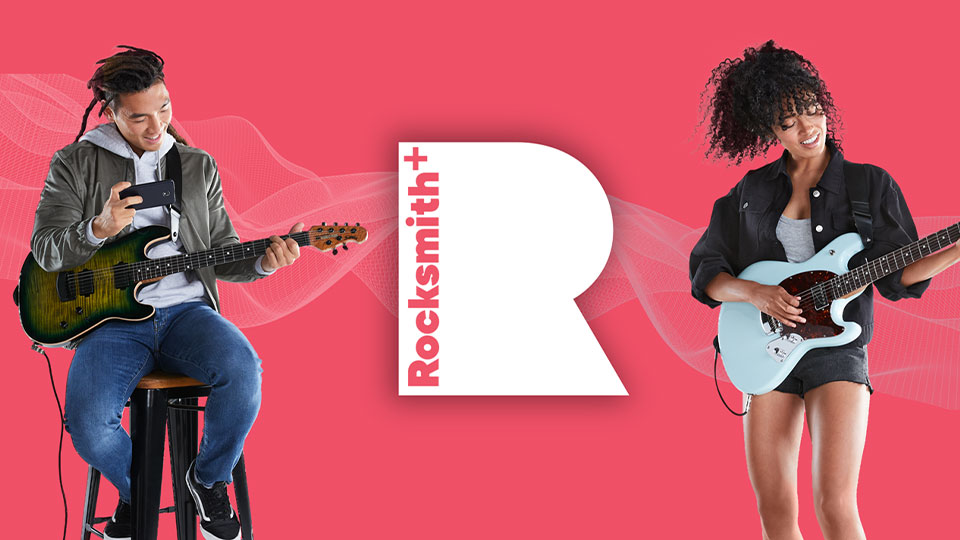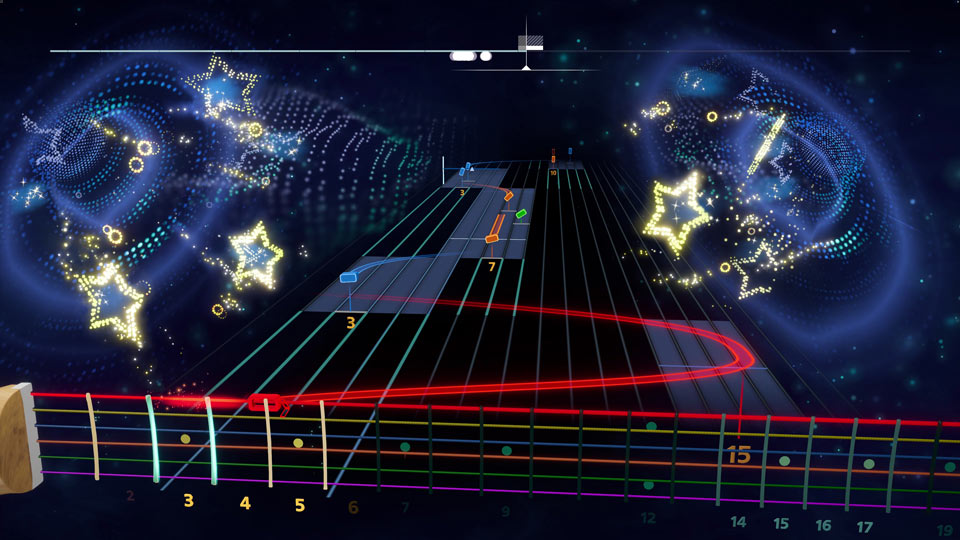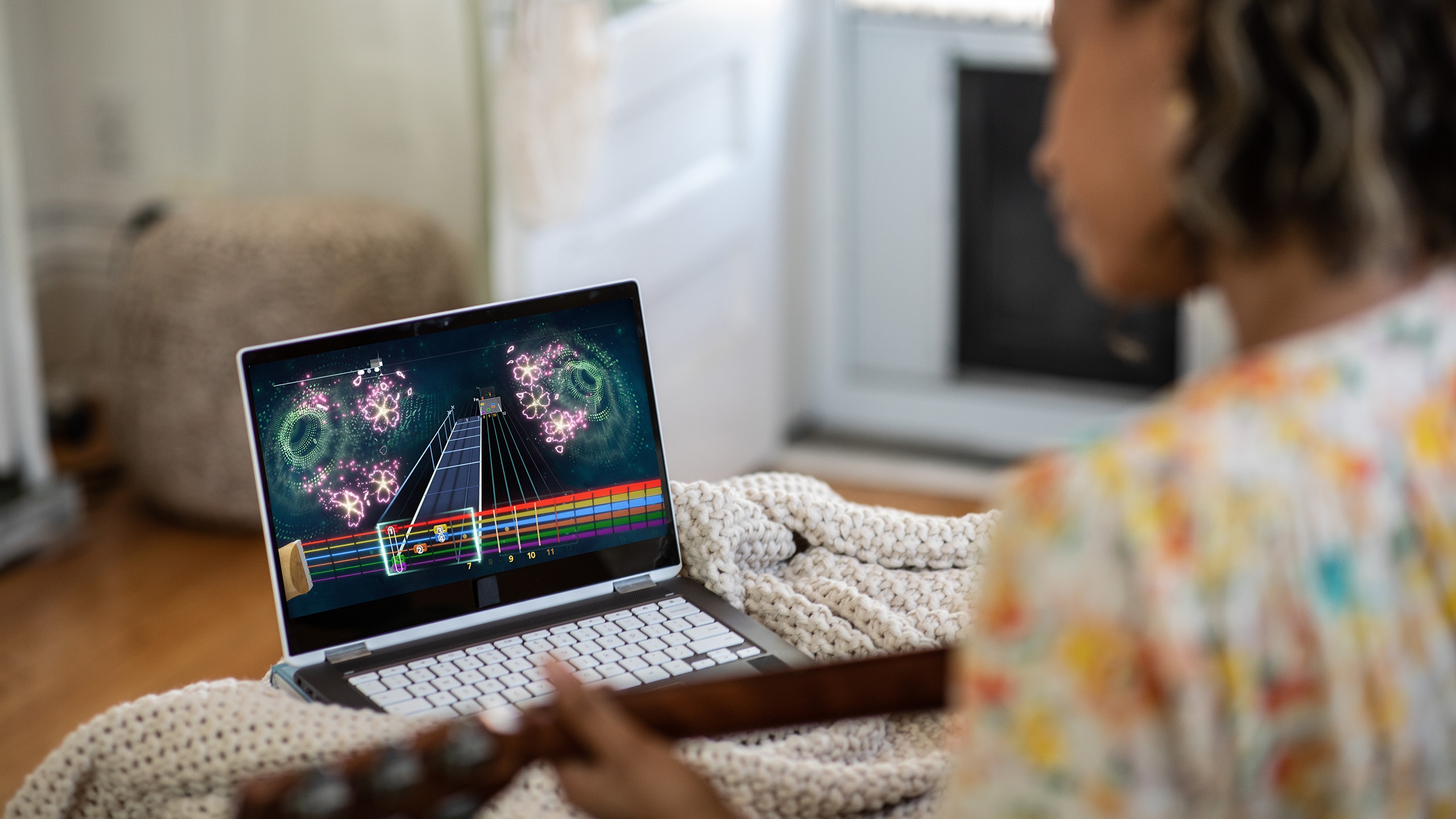Hi Rocksmith Community!
In last month’s Rocksmith+ Dev Diary, we thanked all of you who participated in our PC closed beta test, shared our development priorities inspired by your feedback on forums and social media, and promised that we’d follow up with you all once we’d read through the beta surveys.
We’ve now absorbed many thousands of survey responses on Rocksmith+. Thank you to so many of you that took the time to share your thoughts with us – it speaks to the passion of this community and how much you care about music learning. A recurring message that you shared with us was, “Rocksmith means a lot to me and I want to see it succeed.” Music and Rocksmith mean the world to us too. We care and we're listening.
We are inspired by your passion for the game and after reading your detailed feedback, we’d like to share timeline updates, development progress, and next steps.
We originally targeted a “Summer 2021” launch on PC. We didn’t set a hard date because we wanted the flexibility to react to feedback and to adjust release timelines to match. We’ve mapped out the work we’d like to prioritize following your feedback and decided to push the release of Rocksmith+ to 2022.
We understand that this delay is disappointing. Our decision stems from a commitment to quality first, and a desire to meet the high expectations of our community and ourselves. Every Rocksmith+ player deserves to easily find the music you care about, to feel a sense of growth and mastery over your instrument, and to trust that the notes you play are heard fairly and accurately.
Since Rocksmith+ will be a live service built on constant updates, feature improvements and new content, we must think long term. Work-life balance is an important consideration as we plan our launch date and accompanying live service support post launch. A healthy team means a healthy product built to last for many years to come. Thank you all for your patience and for your understanding while we put in the extra time.
A lot of work has gone into Rocksmith+ since the beta ended in July, so we’d like to touch on some of the improvements so far and what's coming next. The beta feedback aligned with the development priorities we detailed in last month’s dev diary, and the big improvements we’d like to make fall under the following categories:
- The song library
- Audio inputs and note detection
- Progression and education
- UI, search, and content discoverability
1. The song library
Songs are the most important part of Rocksmith+.
For the beta we were limited to around 500 songs. This wasn’t enough. Including more song arrangements is a primary driver for opting for more development time.
For the Rocksmith+ launch, we’re committed to offering thousands upon thousands of songs. And that’s just to start.
Compared to Rocksmith 2014, we’ve increased the size of our music content team five-fold and we’ve massively improved our production tools for creating transcriptions faster. We’re currently evaluating the weekly release cadence for hand-made arrangements, but we can already confirm it’s well over 10 times the weekly verified content we had in Rocksmith 2014. We expect to get much faster. And this doesn’t include the AI-generated chord chart arrangements or the community creations from the Rocksmith Workshop.
Speaking of Rocksmith Workshop, the team have been hard at work to ensure creating your own transcriptions are as easy as can be. We understand transcribing is a high skill ceiling no matter how powerful our tools, but we’ve added more supported file formats and included major quality of life features like click and drag.
Of course, we know that it’s not just the quantity of songs that matter, it’s also about having the songs that you want to play. This means notetracking more artists from highly suggested genres to bolster our catalog diversity and meet player expectations. We know this is the single biggest factor for most users to subscribe to Rocksmith+ so we must deliver.
And finally, to my fellow bassists, we heard you: we didn’t have enough bass arrangements in the beta. We’ve been rectifying this over the last couple of months and we’ve already added hundreds of new bass arrangements. The extra development time means we’ll be able to continue adding more arrangements to our library.
2. Audio inputs and note detection
We’ve committed significant polish time to the feel of note detection since the beta. While our audio engine and tuner in Rocksmith+ are much improved over past Rocksmith releases, your feedback helped us to dial in the subjective aspects of detection. Detection that’s too strict can feel robotic, losing out on the swing and fun of some of our favorite songs; detection that’s too forgiving sacrifices challenge and can foster bad habits. After several months of tuning and bug fixing, we’re confident we’re approaching the right balance for as many players as possible. Chords now allow more “give,” sustains are more flexible and accurate, low-frequency bass tones are better detected, and tremolo techniques work as intended.
Many of you connected your guitar or bass to Rocksmith+ using “Other Interfaces,” your own audio setups outside of the official Real Tone Cable or our Rocksmith+ Connect mobile app. Support for other interfaces was highly requested in Rocksmith 2014 and we were delighted to finally be able to offer this feature in Rocksmith+, even though we knew it would demand a lot of testing. With our team working from home over the last 18 months, testing a vast array of audio configurations internally was quite a logistical challenge. With all the devices we ordered and sent out, the homes of some of our testers, audio designers, and engineers ended up looking like makeshift recording studios! With your help during the beta, we’re hard at work fixing crashes and UX issues with the most used audio interface configurations. We will continue to improve the “Other Interfaces” experience through Rocksmith+’s launch and beyond, prioritizing the most ubiquitous device configurations first.
For users who’ve downloaded our Rocksmith+ Connect mobile app on iOS or Android, we’ve released multiple title updates to make the app load faster, offer more troubleshooting support, increase quality of life, and further refine detection. If you didn’t know about the Rocksmith+ Connect app, we encourage you to download it for free and give it a try. It’s available now on the Apple App Store and Google Play Store. The app also doubles as an extremely accurate mobile tuner.
3. Progression and Education
A demonstrable sense of progression on your instrument is essential for motivation, confidence building, and learning. The beta surveys indicate that many of you are excited about our new Skills Profile feature, which tracks and displays growth across all detectable techniques in Rocksmith+. The objective with this skill-based leveling system is to offer a feeling of meta-progression beyond just individual songs and serve as a bridge toward music theory. However, due to bugs in the beta test, the Skills Profile feature wasn’t yet tracking progress as intended. We have since addressed the issue and are focused on tuning the leveling balance of these skills now. We’re excited for this feature’s potential over time, including the ability to launch songs featuring specific techniques directly from the Skills Profile page.
On the song level, “mastery” is the aggregate of an arrangement’s difficulty and the accuracy of the performance. It’s the ultimate objective of most song gameplay in Rocksmith: to play a song with all its notes, just like the original recording, at full accuracy. We decided that mastery’s presentation in the beta was too opaque and the calculation behind it felt disconnected from player goals. We’ve since streamlined the presentation and the math behind mastery to be more welcoming, elegant, and understandable. As an example: now if you play a song at half difficulty (50%) and attain 90% accuracy (great job!), you will have earned a mastery level of 45. The math behind mastery is simple: difficulty multiplied by accuracy represented as a percentage. To push your mastery further, Adaptive Difficulty will increase the song’s complexity gradually to meet your improving skills.
Or if you’d like to forego Adaptive Difficulty and play the song with all the notes present from the start, we’ve made that easier for you. We’re putting the finishing touches on the returning “Override to Max” feature, meaning experienced players won’t have to manually adjust those difficulty sliders every time you launch a song.
We’re fixing many bugs and improving UI in the Song Progress page, so we’ll accurately track your initial song mastery and how much you’ve grown on a particular arrangement over time. Think of this feature as a “before and after” logbook for the mastery of your most played arrangements, a way to show off your progress as a musician.
In the beta, we only had a handful of lesson suites. We’ve now integrated the full interactive curriculum for introductory lessons across both guitar and bass, and we’re working on intermediate lessons now. These lessons feature original compositions from our music content team designed to help you learn key skills like popular chords, scales, and string skipping techniques. We’re setting up a regular live cadence for new lessons so there will always be something fresh to learn and look forward to. With beginner and intermediate lesson foundations in place, we’ll ramp up toward more advanced lessons, genre breakdowns, and music theory.
4. UI, search, and content discoverability
The beta surveys indicated that most people enjoyed the aesthetics of Rocksmith+’s menus, but many of you had trouble finding and searching for songs. We’ve dedicated one of our bigger strike teams to improving search and discoverability as a high priority.
The first priority is reducing the number of clicks to search and find songs. The search feature in the beta needed more polish; we’ve streamlined the experience with fewer buttons and a cleaner look. The other immediate improvement we’ve made is the addition of many more song search filters for arrangement type, tuning, capo support, difficulty, and genre. Finally, the search page now displays the entire library to browse and filter, with a number display that indicates the total amount of arrangements available within your search parameters in real time. Showing the whole library at once benefits from the new pagination feature we added partway through the beta.
While we’ve made big strides to improve search already, there remain additional important features to include like alphabetical sorting both in-client and on the website, and a Rocksmith 2014-style list view that offers more arrangement data at a glance. The upcoming list view will also help address the feedback that many of the longer artist or song title characters were cut off to fit under the album art.
For the rest of the UI in general, we’re making every effort to reduce clicks and load times, increase speed, and offer more functionality to easily find what you’re looking for. A big area of qualitative testing for us right now is further refining different control types ranging from mouse & keyboard, keyboard alone, and gamepad. Any way you want to control Rocksmith+, your experience must be smooth.
As to the visuals in the noteway, we’ve adjusted the default saturation, contrast, and noteway color to be more readable. We’re also expanding our palette of notehead color customization options, which will include original Rocksmith 2014 color settings along with our many new ones already in Rocksmith+. Our aim is for Rocksmith+ to be as accessible to as many people as possible.
We truly consider our community to be partners in development. Everyone who played the beta and offered feedback is a stakeholder in the future of Rocksmith+ and the future of music learning. You’ve invested in us, and that investment deserves transparency and real talk in return. We will continue to share monthly development updates with you so you can follow our progress and offer your thoughts. When we have a new release date to share, we will.
Quality is paramount for us. We thank you for your understanding as we work toward making Rocksmith+ the best experience it can be. We can’t wait to share more about Rocksmith+ soon!
Arthur von Nagel is the lead producer on Rockmith+ and has been working on the Rocksmith brand for half a decade. Before joining Ubisoft, he served as a voiceover director, composer, designer, producer, and localization specialist for many videogames. Arthur was the vocalist and bassist for San Francisco Bay Area progressive black/death metal band Cormorant, touring nationally and releasing three albums.



